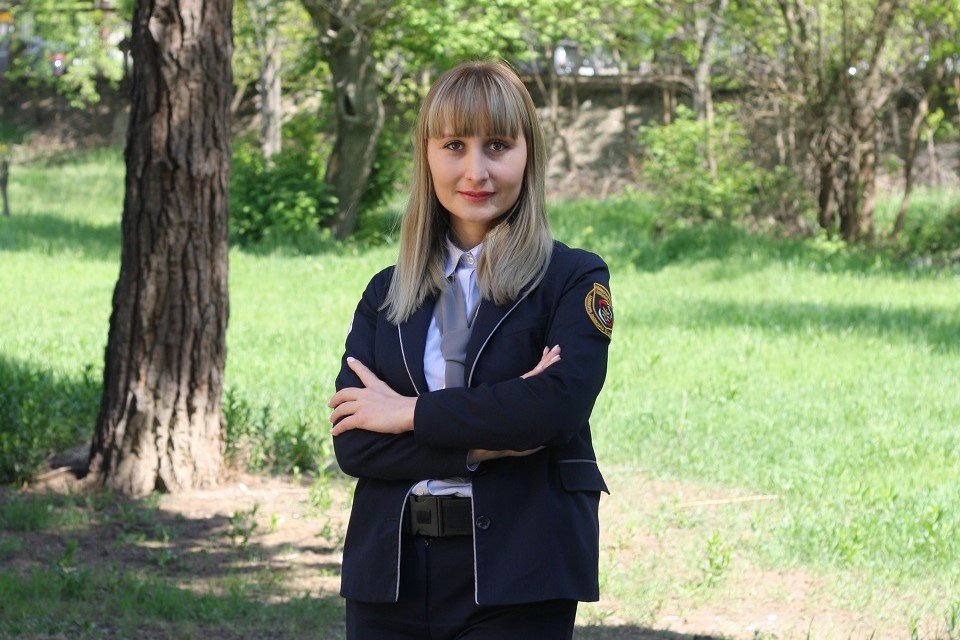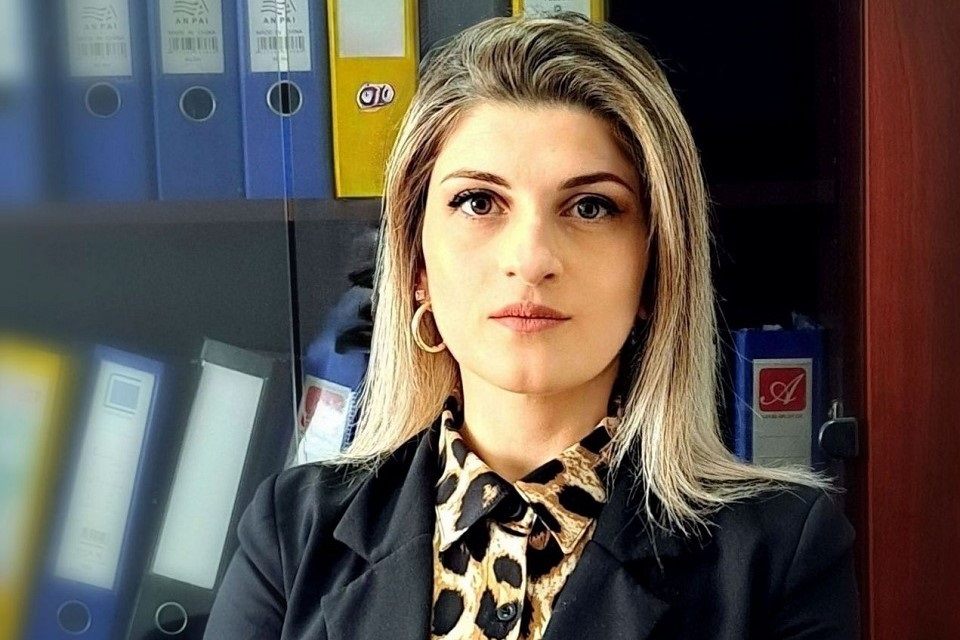Resource officers of educational institutions against gender stereotypes
Since 2021, with the support of UN Women and the financial support of the European Union, the employees of the Office of Resource Officers of Educational Institutions have been undergoing the training-of-trainers course “Gender Mainstreaming in Education: Gender-Based Violence and Domestic Violence”. The resource officers trained within the framework of the project have conducted 42 trainings for 837 colleagues throughout the country. The initiative, which serves to overcome gender stereotypes in the school environment and increase the reporting of cases of violence, is part of the project “Ending Violence against Women and Girls in Georgia” (EVAWGG), funded by the European Union and implemented jointly by UN Women and UNFPA.
Date:

‘The role of the resource officer in overcoming gender stereotypes is very important,’ says Miranda Nozadze, a 31-year-old resource officer at Tbilisi Public School No. 131
Miranda Nozadze joined the Office of Resource Officers of Educational Institutions in 2019. Her duties include the prevention of all forms of violence and effectively responding to them. The negative impact of gender stereotypes often manifests in both public and school life. Miranda says that the role of the resource officer in overcoming gender stereotypes is very important and cites a specific example: “I remember one boy who was often laughed at by his classmates because of his compassion. The reason for this behaviour was the well-established stereotype that ‘boys don’t cry’. With the efforts of the resource officer and the teacher, this problem was resolved, but the fact itself proves how important it is to conduct preventive, informational meetings and to resolve conflicts in non-violent ways, in order to establish tolerance and equality among students.”
The training module “Gender Mainstreaming in Education: Gender-Based Violence and Domestic Violence” helps to effectively lead this process. Miranda, who has undergone the training-of-trainers course, has already shared her experience with other colleagues. As she notes, after the training, the participants better understand the negative impact that gender stereotypes have on one’s quality of life in general, as well as one’s perception and evaluation of reality in any field, especially in school life.
“My colleagues say that the training helps them to contribute as much as possible to the establishment of gender equality in school life and to respond appropriately to any manifestation of violence,” Miranda notes. She believes that continuing education will give the resource officers even more opportunities to deal with challenges in their work.

‘With the involvement of resource officers, many incidents of domestic violence against children were revealed,’ says Lika Chumburidze, the 33-year-old Senior Coordinator of the Samegrelo and Zemo Svaneti Centre of the Planning and Analysis Division
“I had a case when I noticed signs of violence, in particular physical violence, inflicted upon a student. Of course, we took all the measures in accordance with the law and notified the appropriate services. However, looking back, I think that if I had had the knowledge that we currently have in recognizing the initial signs of violence, I might have discovered domestic violence against the child earlier,” recalls Lika Chumburidze, who has worked as a resource officer since 2019 and now serves as the Senior Coordinator of the Samegrelo and Zemo Svaneti Centre of the Planning and Analysis Division. In 2021, Lika completed the training-of-trainers course “Gender Mainstreaming in Education: Gender-Based Violence and Domestic Violence” and then retrained 150 resource officers of the centres in Adjara, Guria, Tbilisi and Mtskheta-Mtianeti. Lika still holds meetings on human rights, tolerance, diversity and non-discriminatory approaches for resource officers, students and teachers. She says that the school is a living organism and that all attitudes in society, including gender stereotypes, are reflected in this space; therefore, training and raising the awareness of those involved in school life has a special role.
“During the training, the participants themselves mentioned that they often encountered these stereotypes in the school environment,” Lika notes. “Therefore, teaching is a prerequisite not only for the formation of an equal, safe and non-violent environment in school but also for changes in gender stereotypes established in society. With the work and involvement of resource officers, many incidents of domestic violence against children were revealed.” She adds that this result is very important in terms of establishing the right values in the school environment.